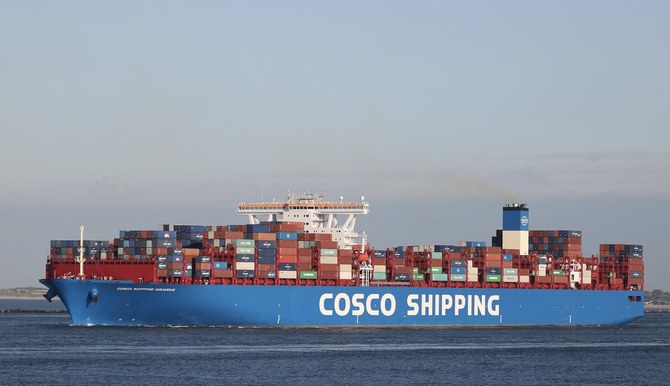
13 Aug 2024
RIYADH: Saudi Arabia’s King Abdulaziz Port in the Eastern Province is set to strengthen its ties with the Far East following the introduction of the Mediterranean Shipping Co.’s new service.
The General Authority for Ports, known as Mawani, announced that MSC will launch the new ‘Clanga’ service at the Dammam-based port.
The new service will connect Dammam with major ports in China, including Ningbo, Shanghai and Shekou, as well as Singapore. The service will operate weekly voyages with a capacity of up to 15,000 twenty-foot equivalent units.
The move aligns with Mawani’s efforts to boost the competitiveness of Saudi ports, support and empower national exports, and is in line with the goals of the National Transport and Logistics Strategy, which aims to solidify the Kingdom’s position as a global logistics hub and a nexus linking the three continents.
In a statement, MSC said the new service is designed to address port congestion issues in the Middle East and enhance connectivity for Asia-Middle East cargo.
The company, which recently won the “Best Shipping Line – Asia-Africa” award at the 2024 Asian Freight, Logistics, and Supply Chain Awards, added that the Clanga service will offer competitive transit times and boost trade links between China, Singapore, and Saudi Arabia via Dammam.
It further said that Clanga would offer a unique and competitive service for Saudi exports to the Far East through its direct call in Shanghai from Dammam.
In addition to the Clanga service, Mawani also launched the “Milaha Gulf Express 2,” known as the 2-MGX service, operated by the Qatari company Milaha, which is expected to further elevate the port’s role in global trade by providing better access to major international markets.
King Abdulaziz Port reported strong performance in the first half of 2024, with a 37.4 percent increase in total export and import containers, reaching 1,534,961 TEUs compared to 1,117,133 TEUs during the same period last year.
Total transhipment containers also surged by 87.87 percent, reaching 37,806 TEUs, up from 20,124 TEUs in the previous year.